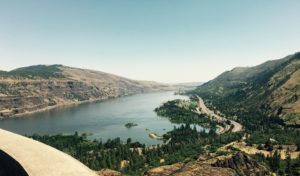Defending the Pacific Northwest from Spread of Aquatic Invasive Species: Northwest Members of Congress Seek Protection of Columbia River Ecosystem, Hydropower Infrastructure
Members of Congress from Oregon, Washington, and Idaho sent a letter to Secretary of the Interior Ryan Zinke requesting assistance to combat the spread of an invasive species of mussels that threatens the Columbia River system, fisheries, and hydropower infrastructure.
In a bipartisan effort, U.S. Representatives Kurt Schrader (D-OR), Jaime Herrera Beutler (R-WA), Peter DeFazio (D-OR), Mike Simpson (R-ID), Dan Newhouse (R-WA), Rick Larsen (D-WA), Cathy McMorris Rodgers (R-WA), Suzanne Bonamici (D-OR), Raúl Labrador (R-ID), Adam Smith (D-WA), Denny Heck (D-WA), Pramila Jayapal (D-WA), Earl Blumenauer (D-OR), and Dave Reichert (R-WA) signed the letter urging Secretary Zinke to maximize federal resources to effectively combat the invasive spread of quagga and zebra mussels that threaten the region.
The text of the letter follows.
Dear Secretary Zinke:
We write to draw your attention to the immediate threat of invasive mussels to the Pacific Northwest region and request your assistance, through the Department of the Interior, in combating their spread.
In November 2016, invasive mussel larvae were detected at Canyon Ferry Reservoir and Tiber Reservoir in Montana. Prior to this detection, the Pacific Northwest remained one of the only regions in North America without invasive quagga and zebra mussels. Any further spread of invasive mussels would have devastating and extensive impacts on the economy, natural resources, and river operations throughout the region. In fact, if invasive mussel populations become established in the Pacific Northwest, it is estimated to cost our region $500 million every year just to manage the effects of an infestation.
Therefore, we believe it is imperative that we work together to ensure that these species do not breach the Continental Divide and invade the Columbia River system. Failing to do so would likely result in widespread infestation throughout the Columbia River Basin. Once these mussels are introduced, there is no known way to eradicate them.
The Department of Interior is critical for augmenting efforts of the States in preventing the spread of invasive mussels through such means as establishing and operating watercraft inspection stations and invasive mussel monitoring. The earlier an invasion is detected, the more cost-effective and successful management efforts will be. We appreciate any efforts the Department can undertake to coordinate with stakeholders for monitoring best practices, and we applaud the Department for establishing the Invasive Species Working Group and its several subcommittees focused on this issue.
As you continue in these efforts, we request that the Department do everything possible to ensure containment at the source at high-risk federally infected waterbodies, which is the most effective way to prevent any further spread of invasive mussels. The main source of infected watercraft entering the Pacific Northwest region originates from the Lower Colorado River system, particularly from Lake Mead National Recreation Area. In past years, Members of Congress and states have requested that the Department institute mandatory inspection and decontamination for all vessels leaving infested federal waterbodies, unfortunately the Department has yet to implement this request. As you establish new priorities at the Department of Interior, we reiterate this request and ask for immediate attention to this serious economic and environmental issue.
Disclaimer: Articles featured on Oregon Report are the creation, responsibility and opinion of the authoring individual or organization which is featured at the top of every article.


